Does Covid Cause Sneezing
So far we know that COVID-19 may not cause any symptoms for some people. These liquid particles are different sizes ranging from.
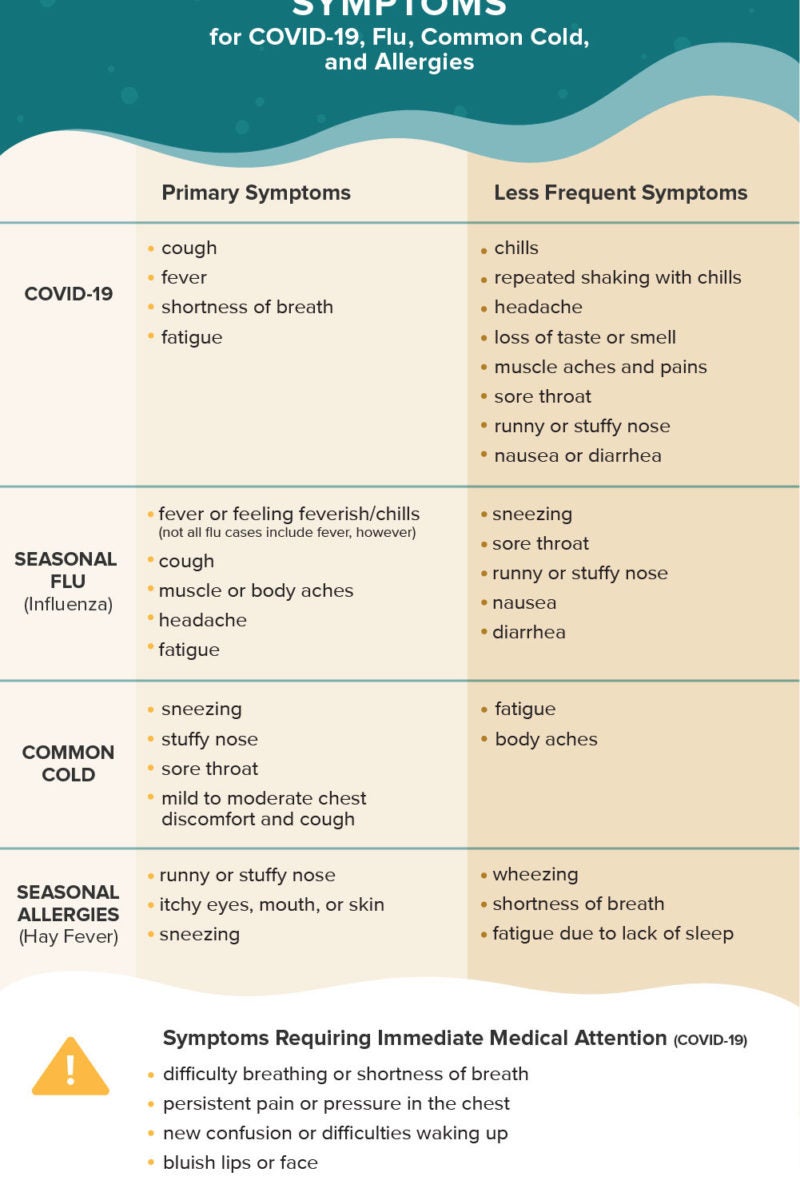
Different Symptoms For Covid Flu Allergies And Cold
Common Symptoms of Coronavirus Common symptoms caused by coronavirus are fever cough shortness of breath fatigue and achiness.
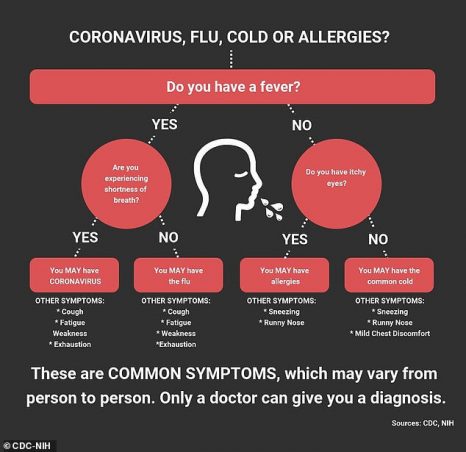
Does covid cause sneezing. COVID-19 is caused by the SARS-CoV-2 virus which spreads between people mainly when an infected person is in close contact with another person. If you have any of the above symptoms and your taste and smell remain intact it still could be COVID-19. Symptoms of Allergies are.
Symptoms of seasonal allergies range from mild to severe and occur seasonally. But the presence of sneezing doesnt rule out COVID-19 Cioe-Pena said adding nothing about this virus is absolute. If your nasal passages are especially sensitive you may experience multiple episodes.
And for more on the current state of the pandemic This Is How Bad the COVID Outbreak Is in Your State. Coronavirus is spread through coughing sneezing and close personal contact. Sneezing and runny noses are not common symptoms of COVID-19 the disease the coronavirus causes.
Fever coughing chest pain and shortness of breath may signal that someone has been infected with the coronavirus. So if you dont have other COVID symptoms you may not need to worry. Although sneezing has been reported in individuals with coronavirus its not nearly as common as the other symptoms mentioned.
Dust pet dander sand or any little particle that enters your nose can irritate the mucus lining and cause a sneeze. Our data shows that people who had been vaccinated and then tested positive for COVID-19 were more likely to report sneezing as a symptom compared with those without a jab researchers wrote according to The Hill. We recommend following the CDC guidelines and those of your local health department to prevent the spread of the virus.
Symptoms typically start between 2-14 days after exposure and will typically resolve within 14 days after onset whether the symptoms are mild moderate or severe. Its a misconception that nasal symptoms are common instead the most common symptoms are fever. The virus can spread from an infected persons mouth or nose in small liquid particles when they cough sneeze speak sing or breathe heavily.
They found that sneezing is a common symptom among those who got COVID-19 and had been fully vaccinated. Seasonal allergies can sometimes bring with them a cough and runny nose - both of which can be associated with some coronavirus cases - but they also bring itchy or watery eyes and sneezing. Covid-19 is the name for the disease caused by the virus.
Curist points out that sneezing can occasionally occur in COVID-19 patients but that allergy symptoms do NOT typically include fever sore throat or achiness which can be COVID-19 signs. At first COVID-19 will seem very similar to a cold with coughing and sneezing. Common COVID-19 symptoms include fever and chills muscle and body aches loss of taste or small nausea or vomiting and diarrhea.
Seasonal allergies can sometimes bring with them a cough and runny nose - both of which can be associated with some coronavirus cases or even the common cold -. Even though many people with COVID-19 might sneeze its not a definitive symptom because sneezing is so common especially in the warmer months where people might experience hay fever. According to Goldstein cold and dry air can irritate your nasal passages and this can cause you to sneeze.
Similarly sneezing is most common with colds less common with flu and least associated with COVID-19. Perhaps the main reason people sneeze is because of irritants in the air many of them microscopic. The coronavirus COVID-19 is a viral illness spread through droplets via coughing sneezing and close personal contact.
The agency noted that things such as shortness of breath coughing fatigue headache and sore throat can be symptoms of either COVID-19 or. However data from the ZOE COVID Study suggests that sneezing more than usual can be a sign of COVID-19 but only in people whove been vaccinated. Some of the most common allergy symptoms include sneezing itchy or watery eyes congestion or runny nose.
You may carry the virus for 2 days or up to 2 weeks before you develop. You start to see a cold and the reason its called a cold is because you dont have a fever Dr.
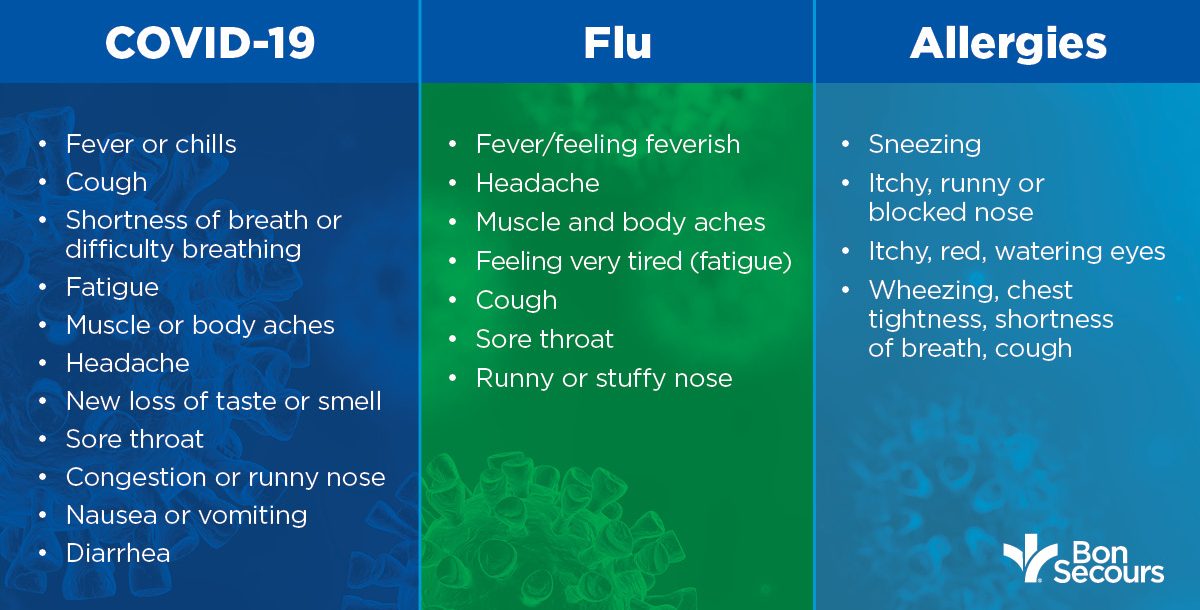
Coronavirus Vs Flu Vs Allergies Bon Secours Blog
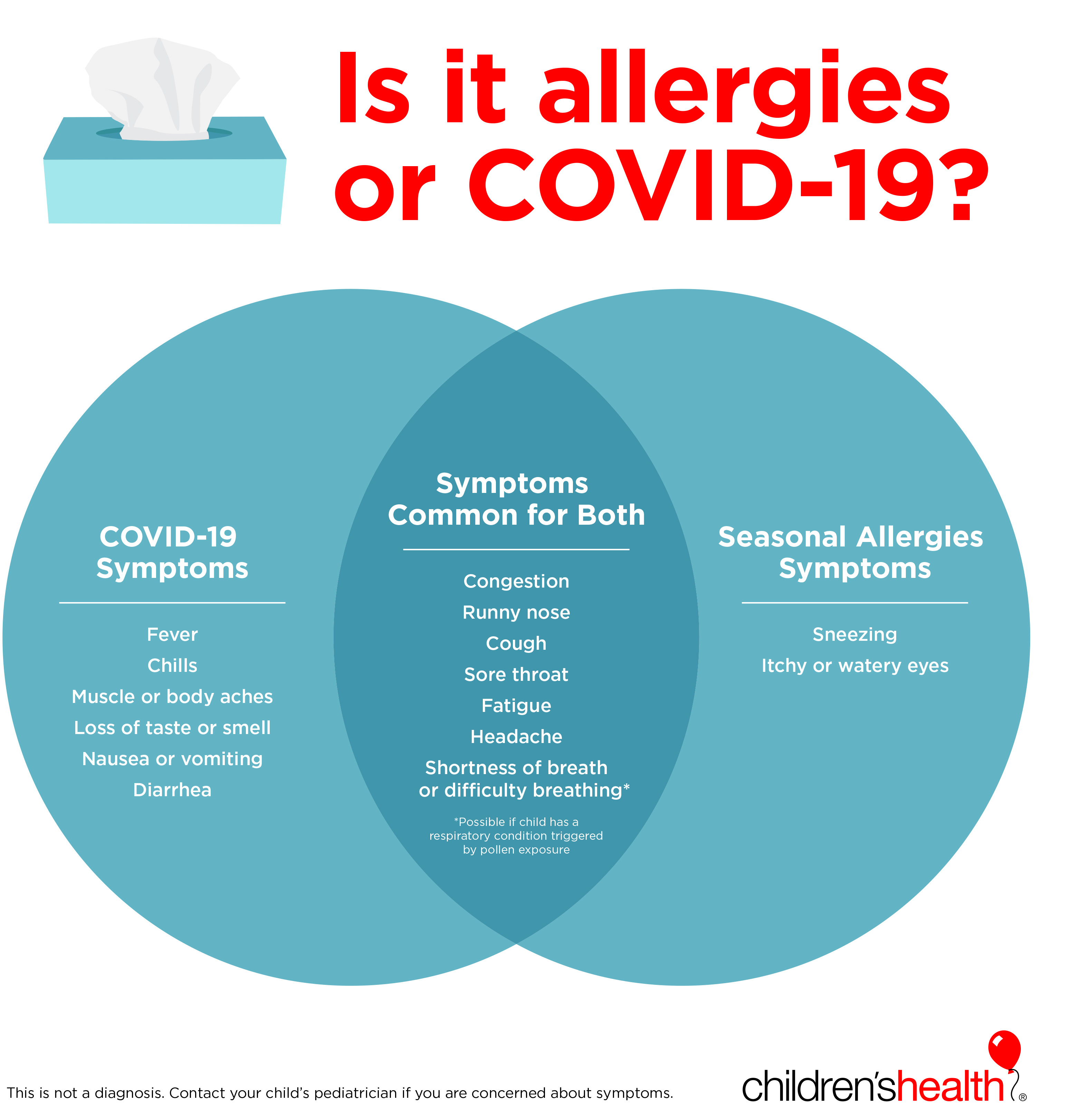
Is It Allergies Or Covid 19 Children S Health

Allergies Flu Cold Or Covid 19 Elite Care 24 Hour Emergency Room
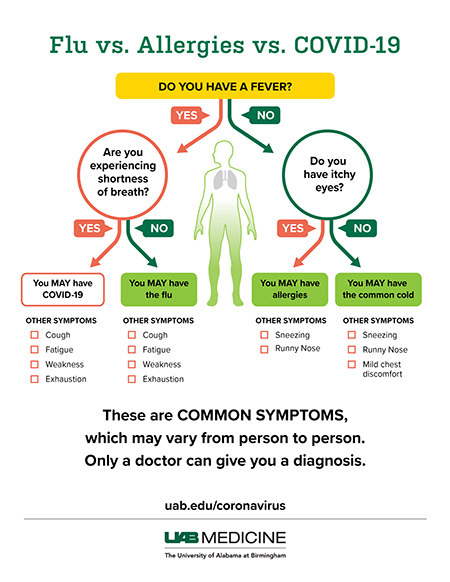
Sorting Out Symptoms Of Covid 19 Influenza Colds And Allergies News Uab

How You Can Tell The Difference Between Allergies Cold Flu And Covid 19 Hartford Healthcare Ct
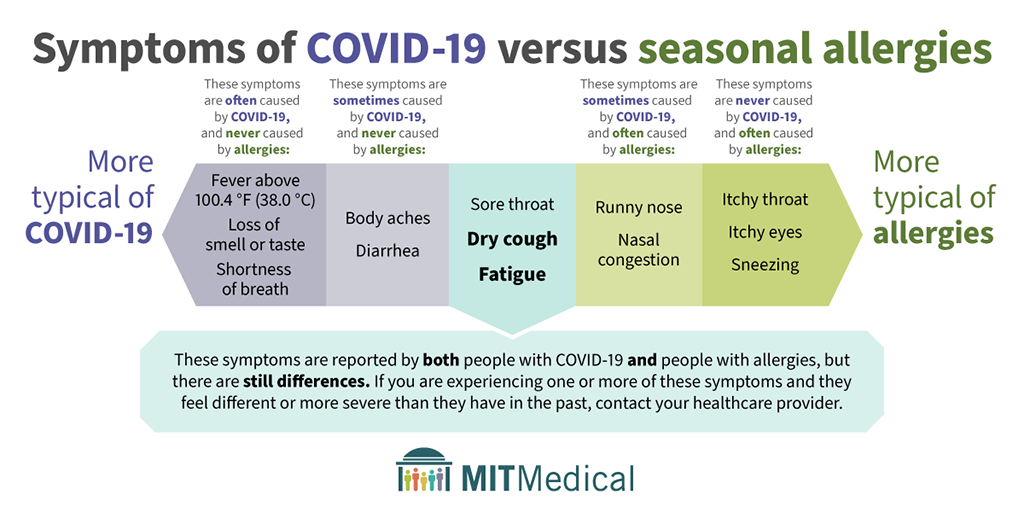
Is It Covid 19 Or Seasonal Allergies Mit Medical
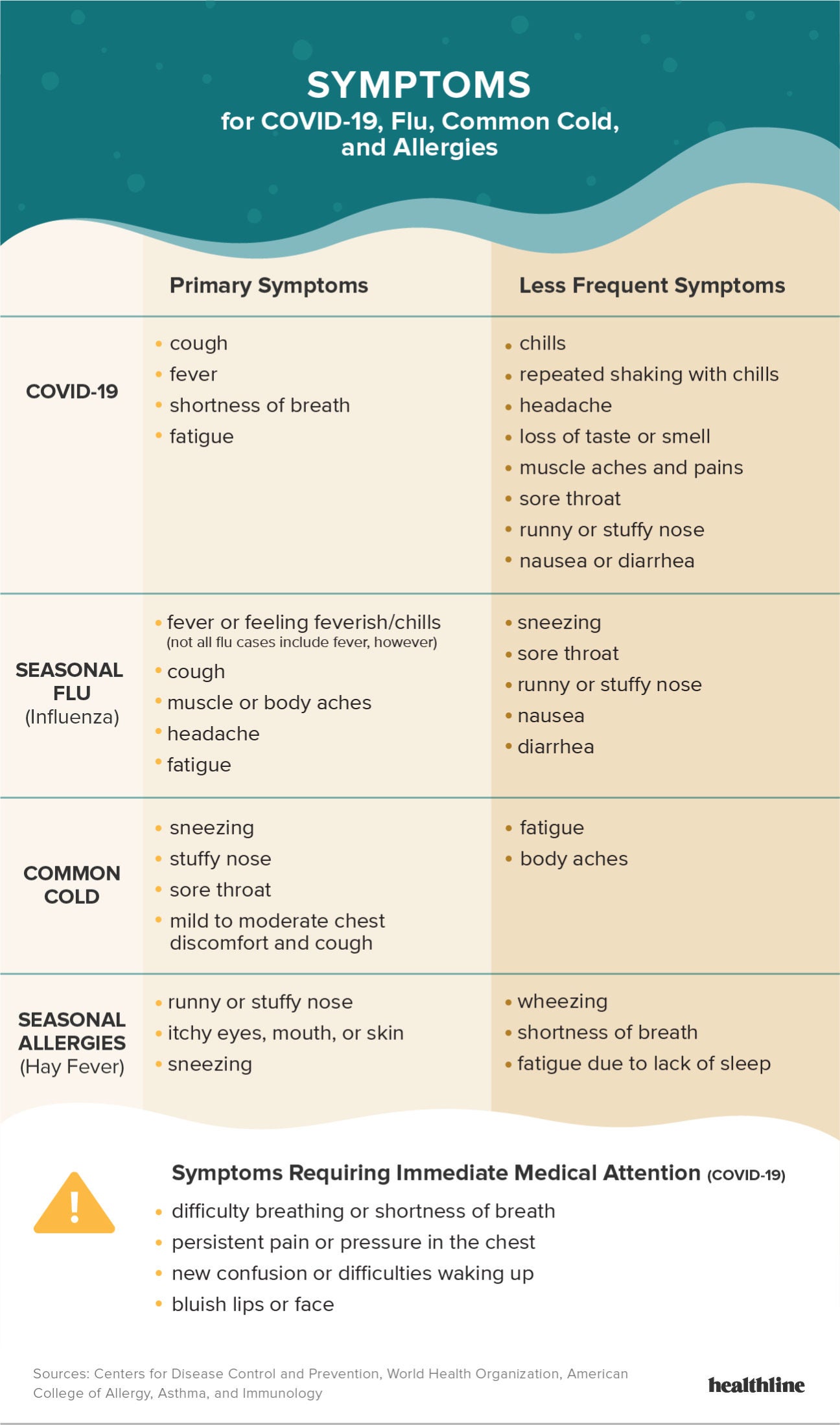
Different Symptoms For Covid Flu Allergies And Cold
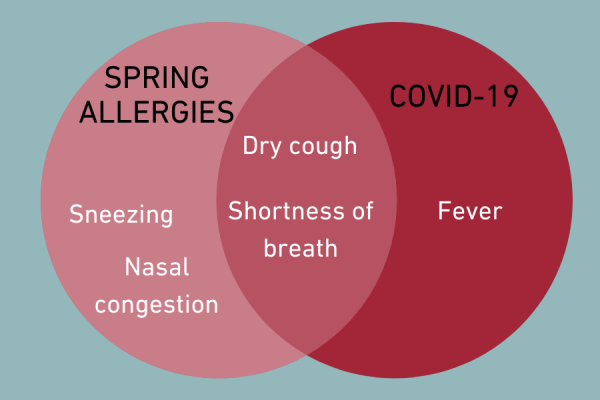
Spring Allergies Vs Covid 19 Learn The Difference Temple Health
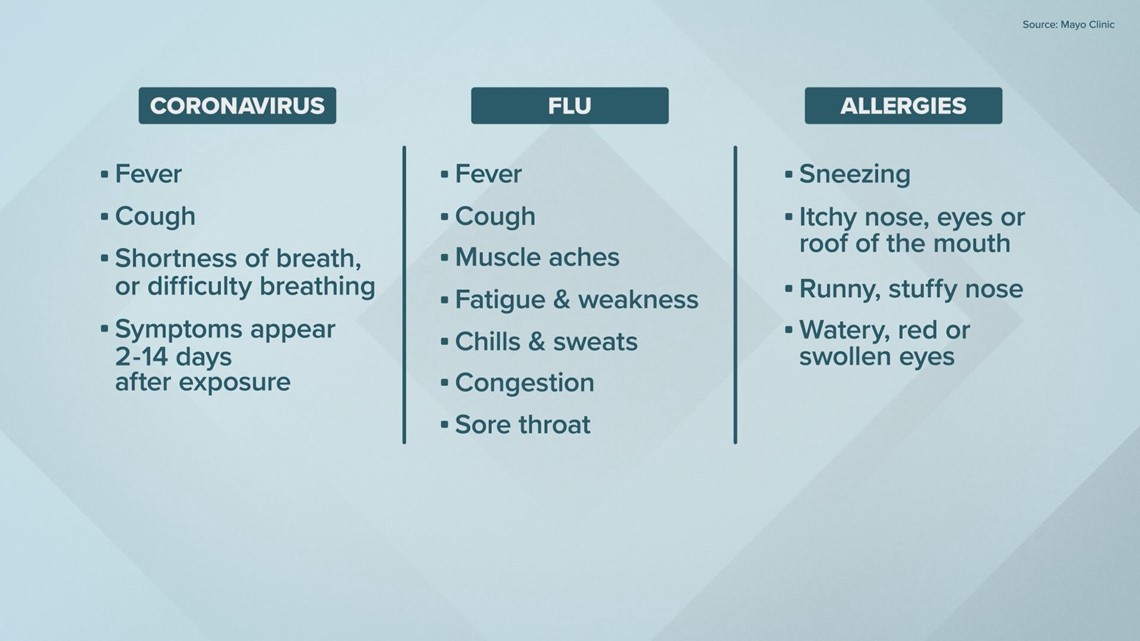
Coronavirus Do I Have Covid 19 The Flu Or Just Allergies Wwltv Com
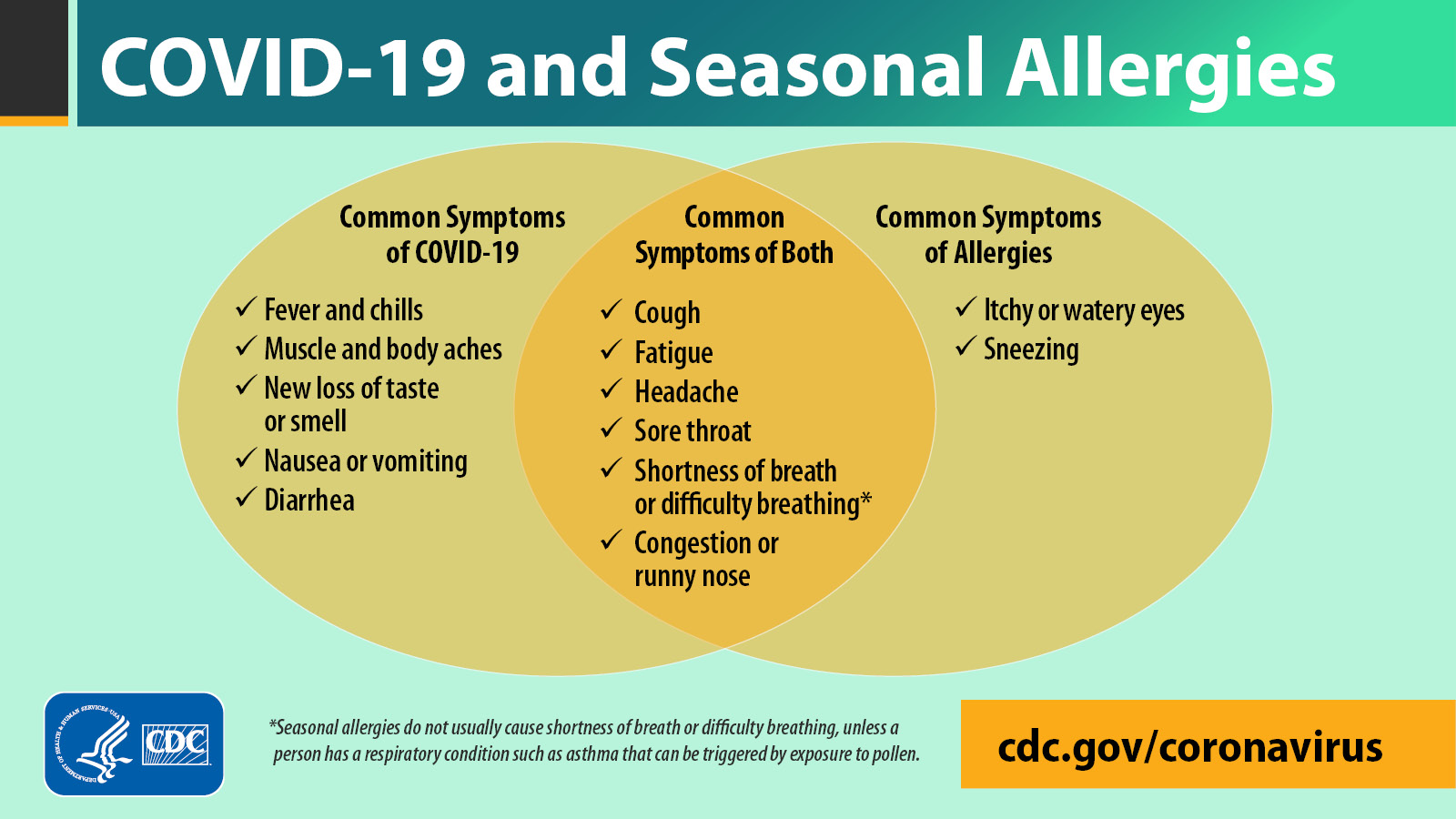
Cdc On Twitter Covid19 And Seasonal Allergies Share Many Symptoms But There Are Some Key Differences Between The Two For Example Covid 19 Can Cause Fever Which Is Not A Common Symptom Of
Posting Komentar untuk "Does Covid Cause Sneezing"